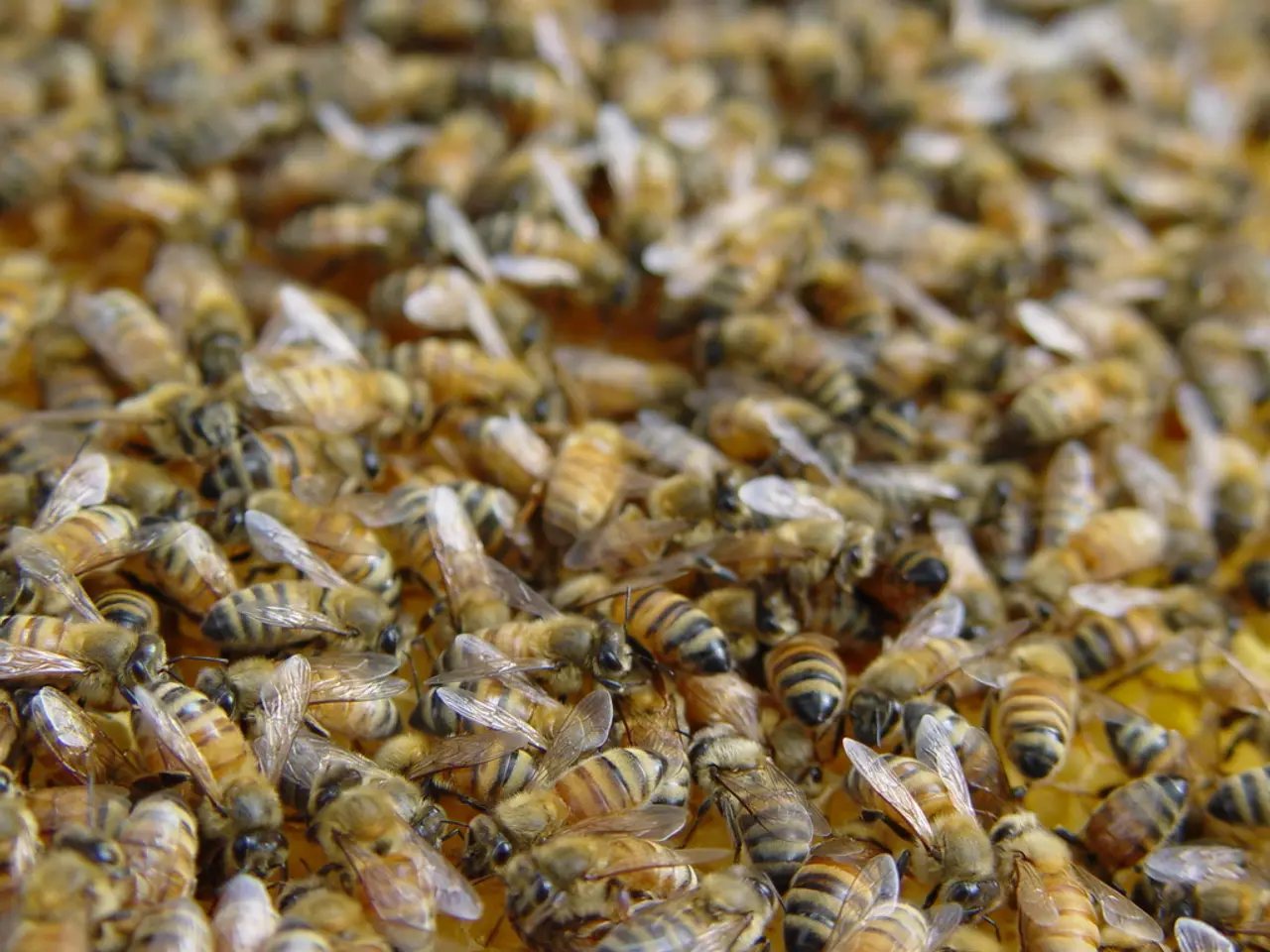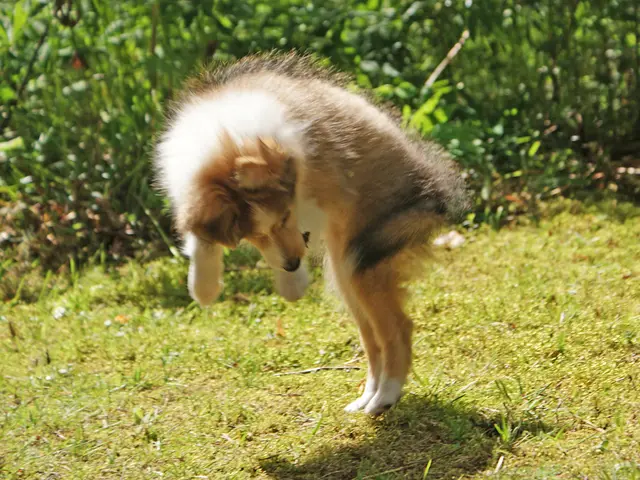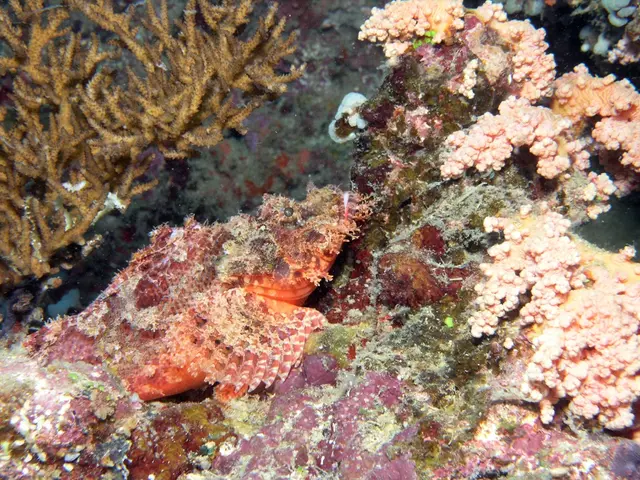Artificial Intelligence and the Defence of Threatened Bees and Bumblebees: An Overview
In the picturesque region of Stuttgart, a concern has been rising due to the decline in hummingbirds, wild bees, butterflies, and other insects. This decline could potentially impact future apple harvests, as these pollinators play a crucial role in the ecosystem.
To address this issue, the University of Hohenheim in Stuttgart has embarked on a research project aimed at better protecting these declining species. The project, funded by the Carl Zeiss Foundation, involves the development and use of AI-controlled cameras to automatically record and classify insects based on their flight patterns.
The AI technology has proven useful in the project, but traditional methods like traps are still considered indispensable. The goal of the project is to gather information about the occurrence of pollinator groups in specific locations, addressing the lack of data for monitoring insect diversity across different areas.
The AI-controlled cameras are a new approach to address the decline in insect populations and improve the monitoring of insect diversity. These cameras are being developed in cooperation with a startup company. However, the details of this collaboration remain undisclosed.
Experts with species knowledge are still necessary for precise insect species determination. The development and use of AI-controlled cameras is a response to the need for more efficient and less harmful methods for recording insects.
Kirsten Traynor, head of the Bee Research Institute at the University of Hohenheim, is an advocate for insect protection. The AI-controlled camera project for insect recording and classification started in January 2024 and has a duration of two years.
As the project progresses, the University of Hohenheim is drawing first conclusions from their research. The results are mixed at best, but the interim report suggests that the AI technology has been helpful in the project. The University of Hohenheim continues to work diligently, striving to better understand and protect insect populations in the Stuttgart region.
Read also:
- projected growth for the natural acetoin market: $291.6 million by 2034
- Latest Edition of Bus-News Magazine Arrives for 2023!
- Testing the Camp Mode of the 2025 Tesla Model Y with Juniper's interior housing two kids, shockingly low CO2 levels were discovered.
- Demonstrating Carbon Storage in Agricultural Forestry through Digital Monitoring and Verification








